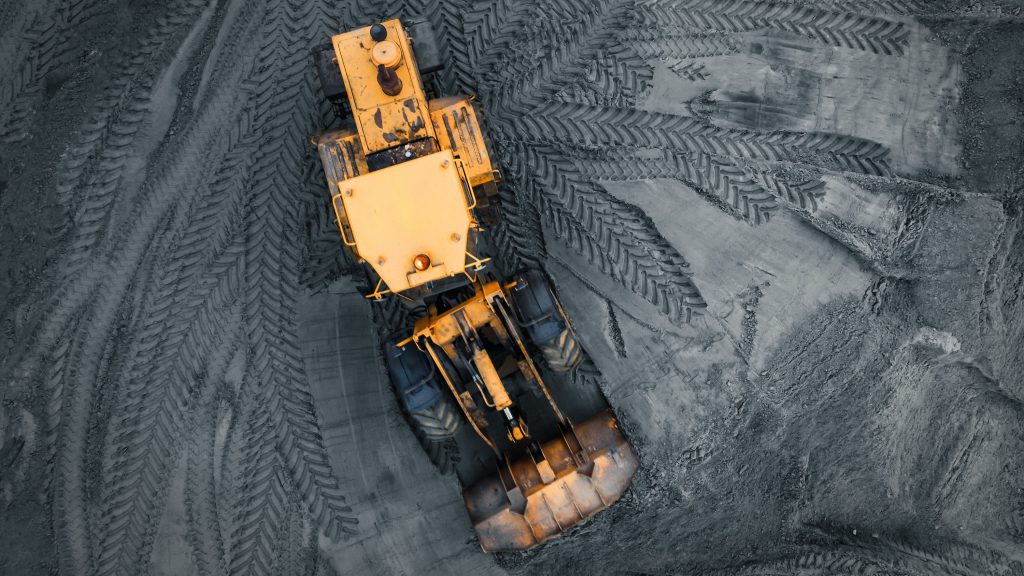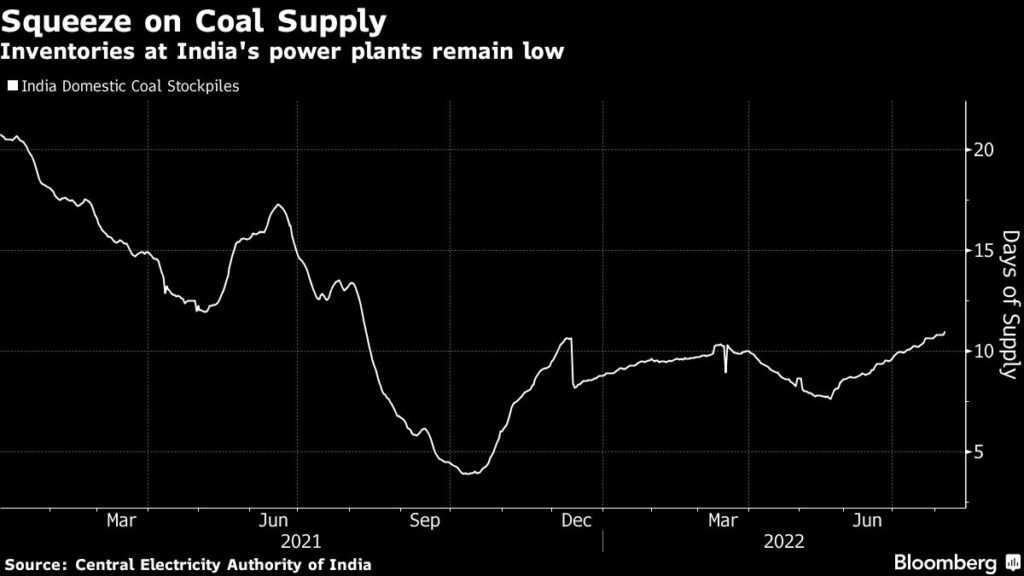India’s state-owned coal miner posts record profit in fuel’s revival

Coal India Ltd.’s first-quarter earnings surged to a record as a global energy squeeze has delivered sky-high prices for the world’s largest producer of the fuel.
The state-run miner’s net income jumped to 88.3 billion rupees ($1.1 billion) from 31.7 billion rupees a year earlier, it said in a statement. Profits beat analyst forecasts as blistering summer heat spurred a frantic hunt for more coal, which accounts for about 70% of India’s electricity generation.
A large chunk of the profit windfall is likely to be funneled back into new mine developments and expansions with Coal India under government pressure to do more to keep pace with demand from power plants and heavy industry. In contrast, overseas producers like Glencore Plc and Peabody Energy Corp. are prioritizing higher dividends or efforts to trim debt.
The Kolkata-based producer in June issued a first-ever global import tender as domestic coal supply fell short of volumes needed to restore power plant stockpiles, while some industrial consumers have seen expected deliveries canceled, forcing them to buy expensive fuel from overseas or pay hefty premiums in Coal India’s auction sales.

Global coal demand is likely to remain far stronger than previously forecast in the coming years as Europe acts to reduce its reliance on Russia energy exports, supporting strong prices, Fitch Solutions analysts said in a Monday note. India’s annual consumption is likely to rise to 1.2 billion tons by 2031, the largest global increase in demand, according to the analysts.
Inventories at India’s power plants have risen to an average of 11 days supply, though that’s still well below required levels of more than three weeks, and almost half the level at the start of last year.
Coal India earned an average 1,829 rupees a ton on coal sales, the producer said Wednesday in a statement, compared with about 1,451 rupees a year earlier. The price increase was boosted by an average 383% premium on spot market sales over contracted cargoes.
Total expenditure rose 11% to 239.9 billion rupees on account of higher costs of diesel and other inputs.
(By Rajesh Kumar Singh)
{{ commodity.name }}
{{ post.title }}
{{ post.date }}




Comments